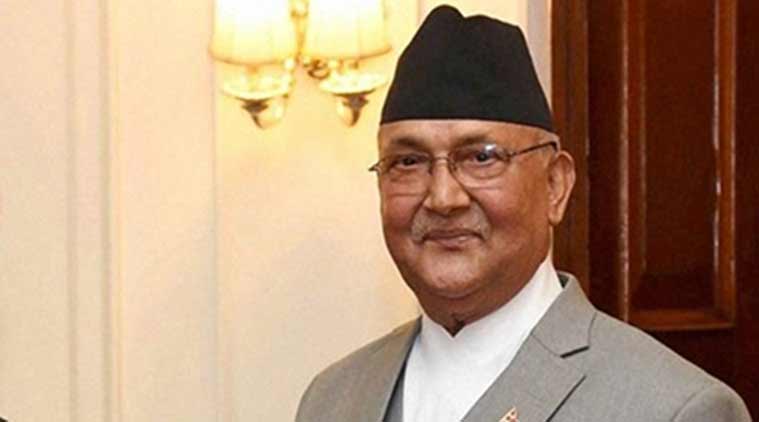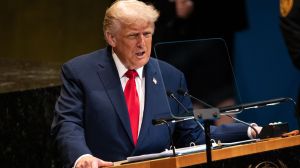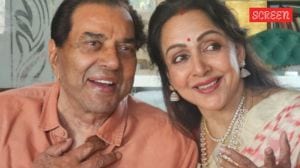Nepal recalls envoy: Why shoot the messenger, Mr Oli?
With India, Oli has brushed the worst kind of statesmanship – and the reciprocation from New Delhi has been mixed.
 Nepal Prime Minister K P Sharma Oli. (Source: PTI)
Nepal Prime Minister K P Sharma Oli. (Source: PTI)
The uncertainty principle is one of the most celebrated but misunderstood ideas of quantum physics, but its usefulness can’t be undermined in Nepali politics where the ‘fuzziness’ rules its nature. Thus, a fledgling democracy, Nepal, has had over twenty governments in the last twenty five years. The domestic power struggle, lack of ruling elites’ taste in development and ensuring governance, have made, over the years, India’s northern neighbour a host of insensitive theatrics camouflaged in ‘selective nationalism’.
The Friday afternoon was quite uneventful at Nepal embassy in New Delhi, where I had a brief meeting with Nepal’s ambassador to India Deep Kumar Upadhyay – neither of us were capable of seeing the ‘uncertainty’ that came with an unusual call from Kathmandu later that evening.
Upadhyay, with a background in Nepali Congress, was never seen as a loyalist of PM KP Oli. In fact, he was sent to Delhi on Nepali Congress quota by the then prime minister Sushil Koirala. He played a vital role in easing tension in India-Nepal relations in recent times, and had reportedly suggested Oli not cancel President Bidhya Devi Bhandari’s visit to India ‘at this 11th hour’.
According to sources, he tried to remind the prime minister that the Nepalese establishment had sought the invitation for the president. Oli, who has been upset with India, wasn’t too pleased with the advice that as the political crisis with India is over, the visit should go ahead. Undermining the imminent political and diplomatic repercussions, Nepal’s foreign ministry recalled Ambassador Upadhyay in a very strange way, with charging him to act differently from the government’s official line. Despotism is being mainstreamed in South Asian politics, a finer example is this one.
After a fresh round of futile power struggles in Kathmandu, the Oli government is likely to survive, for now. And the Oli administration is bound to count easier survival strategies in ‘stoking ultra nationalism’, rather than delivering on hard-pressed political and developmental issues. As the latest development before the India-Nepal ties sees a slide again, Nepali Congress, the largest political party in the country, has supported the move of Maoist chairman Prachanda to oust Oli. But swiftly playing his typical mysterious politics, Prachanda turned around, renounced his prime ministerial ambition, and decided to stick with the serving Left alliance.
The failures at the domestic front were ignored once again by the government in Kathmandu, to divert attention by charging India with being a stakeholder in the present episode. As per reports from various quarters in Kathmandu, Oli has done a deal with Prachanda under pressure from China, where the ‘Left unity’ was made a tipping point.
Noticeably, China has not been an active political observer in Nepal’s domestic politics, so its newly found pastime should be a matter of concern for all, who can think clearly.
Most possibly, Oli is making up his mind to open a passage for Prachanda, to be the next PM. This is expected to happen right after the budget, which is scheduled for later this month. The business as usual of Nepali politics is alarming, where the prime movers are ‘power’ and ‘survival’. Over the last few weeks, the Oli government has not hesitated to adopt undemocratic means to settle its scores with uncomforting voices – the arrest of journalist Kanak Mani Dixit (for allegedly misusing his public post) and cancelling the visa of a Canadian citizen living in Nepal Robert Penner (for his critical tweets) are among the citable examples.
Oli is not a good listener or practitioner of democratic Left ideology he claims to represent as a major leader of his party and the Executive Head of the nation. In recent months, he has done everything to strengthen his command over the bureaucracy and judiciary. Alas, in doing so, he completely missed the inescapable truths, which are not at ease with his fragile political standing. So, an overt disregard of ‘inclusive spirit’, on the matters of high-profile appointments from his government, marks the deeper ills within Nepali politics.
With India, Oli has brushed the worst kind of statesmanship – and the reciprocation from New Delhi has been mixed. As and when the Minister of External Affairs was allowed to be at the helm, the constructive outcomes came out.
Now, on Nepal, Prime Minister Modi is a detached observer – as seemingly he has passed the baton to his ‘party’, to deal with it. As per sources in BJP, the high command has zeroed in on a comfortable policy of ‘wait and watch’. Apparently, in the failure of leaderships to engage clearly, India-Nepal ties are hitting hard like never before.
Oli, a habitual hostile talker, has done immeasurable harm to the mass Nepalis’ who have been the victims of state’s apathy. The Oli government, or whoever heads Nepal next with a new ‘nomenclature’, must think twice before playing with fire at home turf and beyond borders. Whatever lies in the future for Oli — based on his highly incompetent shows so far — history is not going to be kinder to him for his inhuman disregard for post earthquake reconstruction works, divisive provisions laid through federalism and citizenship in the new Constitution, and poverty.
The unresolved issues of Madhes will haunt Kathmandu, and the missed opportunities to bring parity in real politic would be lamented, too, in due course of time. In Nepal, the ‘partitioning elements’ have been allowed to trickle down through political routes. In social sphere too, the same tendency may usurp. With the forgotten real issues, it is not surprising that only the fewer Nepalese are sanguine about their country’s politics.
Nepal deserves better than what it was offered in the power plays of the last one-and-half decade since King Birendra was assassinated with his family. There has been a vacuum; one has to remember this even when the monarchy can’t be a choice. Just to save the basic face of democracy, the Nepali politicians should stop being at loggerhead with the sane ideas – and must not shoot the messenger!
- 01
- 02
- 03
- 04
- 05































